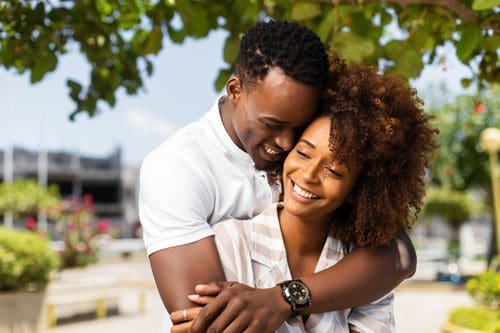 Let’s face it: sometimes being in a long-term relationship isn’t all sunshine and roses. Individuals continue to grow and change, and life always presents new challenges. Even the most connected people need a relationship boost now and then.
Let’s face it: sometimes being in a long-term relationship isn’t all sunshine and roses. Individuals continue to grow and change, and life always presents new challenges. Even the most connected people need a relationship boost now and then.
Moving Forward
When you’ve weathered the proverbial storm of addiction, there’s a lot of repair to do. An individual with substance use disorder has to focus on understanding the reasons behind it and create new healthy behaviors. This person’s partner has internal work to do as well, reaffirming personal worth and establishing proper boundaries. Love may have helped pull you into a place of recovery—but what if you’re ready to add more romantic spark to your relationship?
Advertising and media present us with a variety of romantic gestures, including chocolate hearts, flowers, jewelry, lacy lingerie, and candlelight dinners. While these are certainly nice accessories, psychologists often identify the root of romance as “dating, mating, and relating.” Jeremy Nicholson is a doctor of social and personality psychology. In this article for Psychology Today, he says science points to two types of love:
- Passionate, which involves “intense emotions, obsessive thoughts, and a desire for union with a romantic partner.”
- Compassionate, which is “characterized by an emotional attachment and affectionate feelings toward a partner with whom the individual’s life is deeply intertwined.”
So where does romance fit in a compassionate love connection? It’s a mix of some of the passionate infatuation that initially brought you together as a couple—such as a lot of eye contact, appreciative touching, and exploring thoughts and feelings—combined with reaffirming aspects of communication, trust, and consideration of what your partner might welcome or enjoy.
Ideas for Rekindling the Romance
Keep your heart open to how you and your partner can grow and experience elements of life together. You don’t have to like or do exactly the same things, but creating a balance between each other’s interests is a great start. Here are some ideas.
Schedule time
We all get busy. Work, children’s activities, caring for parents, recovery meetings, and other life obligations often clog the to-do list. At first, it might not seem romantic to block out time on the calendar, but it gives you both something to look forward to. This “you” time is to celebrate your coupledom—it’s not a dumping ground for all the aggravations involving other people or situations. Even if it’s a Saturday morning coffee date, look at each other as individuals and find new ways to relate one-on-one.
Make dates special
If you start from a place of curiosity and playfulness, you’re bound to find all sorts of ways to enjoy each other’s company instead of the usual Friday night dinner out. Although this list of sober fun suggestions focuses on family activities, you two can modify them to fit your interests—and make an agreement that anything is worth trying once!
Show gratitude
Suzann Pileggi Pawelski, positive psychologist and co-author of Happy Together, says “gratitude is one of the most important positive emotions for thriving relationships. When expressed regularly, gratitude has been shown to be a booster shot for satisfaction.” Being kind and saying thank you—especially for the little things—fosters a different level of intimacy that has a lasting impact.
Grow together
Recognize that substance use disorder impacted both of you, and use your new attitude toward life to support each other’s personal growth. For example, select some motivational books and foster a two-person book club where you share ideas and thoughts about what you read. Persuade one another to try a new hobby that allows for space to follow unique interests.
Be more active
Bring out the best in each other with a shared physical activity. A weekend morning hike, camping, walks on the beach, kayaking—anything enjoyed outdoors will help you both because of nature’s healing properties. Or maybe encourage each other to try a Couch–to–5K program, a new sport, or something more daring to get the adrenaline pumping! An added benefit: shared workouts reduce stress, and studies show they also improve emotional connections.
If you want better sex…
Start outside the bedroom. Non-sexual, appreciative touch is a terrific method for fanning the flames of desire. It demonstrates how much you still desire one another, even if you can’t be together. Hug for 10 full seconds when you first walk in the door, as this action creates a flood of endorphins and reinforces your bond. Try a lingering kiss before you leave for work, then walk away with a wink and a smile! Hold or lightly massage hands while watching TV—they’re one of many erogenous zones.
If you want better sex, part two…
Try new things. Consenting, committed adults have no boundaries in a healthy sex life. As long as you’ve genuinely agreed to explore together, you might find that one thing you’ve always wanted to try and can trust your partner with it—or it’s a barrel of laughs that you’ll both joke about later!
Additional Ideas From Twin Lakes
No topics are off the table at Twin Lakes’ alumni meetings, aftercare programs, and continuing conversations. If you’re looking for more meaningful ways to improve your romantic relationship, talk to one of our specialists.



